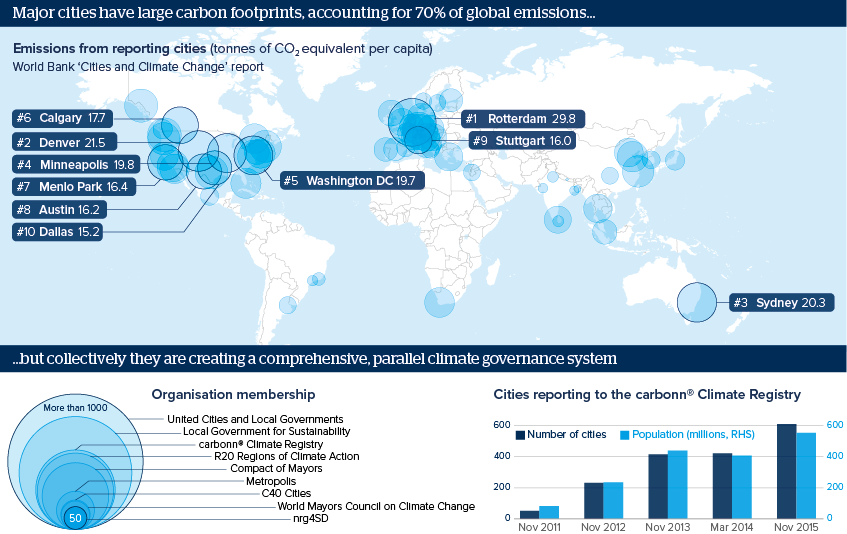Global cities to forge new climate governance system
City leaders are proving to be more receptive to ambitious carbon emission cuts than their national counterparts

Source: World Bank. C40 Cities, carbonn Climate Registry, UN
Outlook
The Paris climate agreement opens for signature next month. The greenhouse gas (GHG) emission reductions agreed are insufficient to slow global warming to the 2-degree 'safe' threshold, and scepticism is growing on whether states will implement their commitments. However, new initiatives driven by cities, which account for 70% of global emissions, could mitigate this.
In 2014, 44 major city governments representing the equivalent of 12.5% of global GDP launched another process -- the Compact of Mayors -- committing them to reducing their GHG emissions. Since then, 384 more cities have joined. Complementary programmes are boosting oversight, improving policy coordination and creating a parallel governance system involving target-setting, reporting and incentives to encourage compliance.
Impacts
- The Global Protocol for Community-Scale GHG Emission Inventories (GPC), launched in 2014, will standardise city-level GHG reporting.
- Forums such as C40 will provide technical assistance to some cities in developing states to comply with GPC reporting standards.
- Low-lying cities in Africa and South Asia vulnerable to sea-level rises will require special adaptation strategies.
- Some cities, such as Copenhagen, will pursue unilateral targets far exceeding multilateral goals, eg, by aiming to become 'carbon neutral'.
See also
- Paris Agreement details complicate Bonn climate talks - Jun 7, 2016
- Global cities could shape new climate agenda - Oct 16, 2015
- More graphic analysis